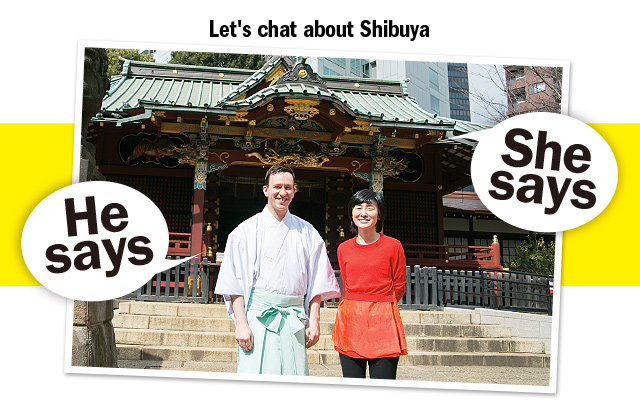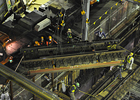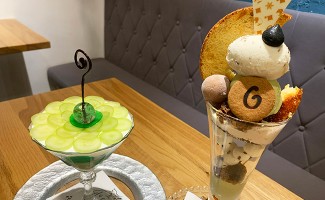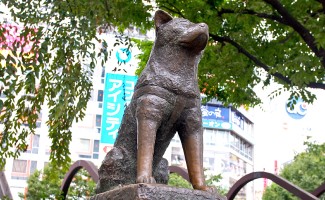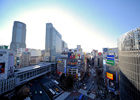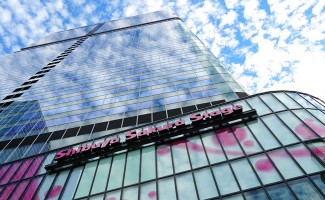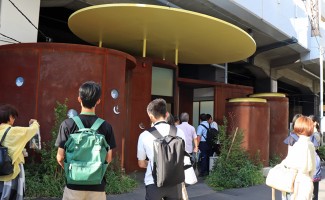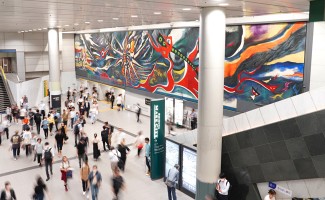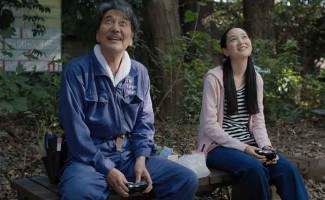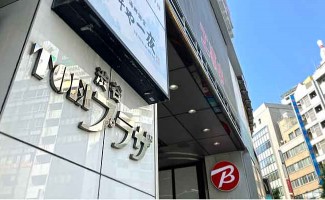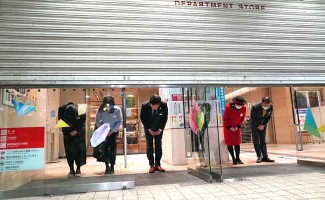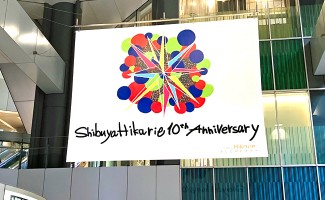
W: Over the years, Shibuya has been developing the foundations of culture. The history of the birth of Shibuya starts from the warriors that came originally from Chichibu, who created their own military movements, receiving the land and name of Shibuya. It was then that they started worshipping Hachiman as their own guardian deity. The paths on the side of the shrine were once linked to Kamakura, a base for the shogunate, becoming a central hub of transportation. In addition, there is now also a hidden river. Until the Meiji period, this was considered a rural area in the suburbs; however, the basic elements that attracted people here were the shrine, the transportation hub and the river.
W:渋谷は大昔から文化の土台を培ってきました。渋谷の誕生の歴史は、秩父から出て来た武士が、武功をたてて渋谷という名前と土地をもらったことが始まりです。そこに、自分の守り神として八幡様を祀った。神社脇の通りは、かつて幕府があった鎌倉に繋がっていて、交通の中心となっていました。あと今は隠れている川があって。明治時代までここは郊外の田舎街でしたが、人が集まる基礎が、神社と、通りと、川にあったんです。
H: In fact, Shibuya has the highest concentration of creative cafés offering services like laser cutting. I was once told by a cultural anthropologist that this was because factories were originally lined up along the river, creating a town that specialised in manufacturing. By unravelling history, we can understand why everybody wants to create things in Shibuya.
H:実は、レーザーカットとか、新しいものづくりができるカフェが一番集積しているのも渋谷なんです。それは、もともと川沿いに工場があって、ものづくりが行われていた街だったからと、文化人類学者の人に言われて。歴史を紐解くと、なぜみんなが渋谷でものをつくりたくなるのかということが分かるんです。
W: By understanding history, we can understand why we are here, as well as what sort of things we should not do.
W:歴史はないがしろにしてはいけないですね。歴史を知ると、なぜここに自分がいるのか、何をしてはいけないかが分かるようになります。
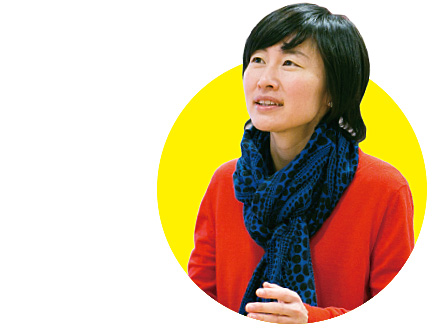
H: If you think about places that keep culture alive from the past as they are linked to the future, Shibuya is this place in Tokyo. Towns that become optimised based on economics and politics have no need to think about history. But when creative people launch themselves towards the rest of the world, they need to learn about the history of their own country. I get the feeling that new things are born from going back further and further into history.
H:文化をいちばん強く残す街、過去から文化を生きたままつなげていく場所と考えると、東京では渋谷だと思います。経済や政治を基礎に効率化した街は、歴史を考える必要はないですよね。一方、演劇家とか音楽家とか、何かを創る人が世界への発進力を持つとなると、自国の歴史を読み解くことが必要になります。新しいものって、どんどん歴史をさかのぼることで生まれるような気がして。
W: I would like Shibuya to be a place that never forgets its roots. It is really important for us to know that, if we were to lose our way, we would always have a place to come back to.
W:これからも渋谷は、ルーツを忘れない街であってほしいです。どんどん時代の変化が速くなっていますが、行く先を見失った場合、帰れる場所がある、というのは大事ですから。
H: I am currently trying to teach the technique of interlocking wood blocks, which is used at the shrine, using a 3D printer. This is a traditional technique handed down through generations of shrine carpenters, whereby buildings are built by interlocking blocks of wood, without the use of any nails. There are now less and less young people who are becoming shrine carpenters. So this is an experiment to encourage others to use once more this Japanese technique of interlocking wood blocks.
H:いま、3Dプリンターを使って、神社に使われている組み木の技術を教えようとしているんです。釘を使わず、木を組み合わせて建物を作る宮大工に伝わる伝統技術ですが、古くなったパーツだけ入れ変えられるという知恵が潜んでいます。宮大工になる若い人が減っている中で、改めて日本が持っている組み木の技術を使ってもらえるよう、技術をデータ化して仕組みを理解してもらったり、なぜそれが生まれたのかを理解してもらう試みです。
W: The best way to learn about culture is to come into contact with it. For example, it is great to hold events like Fashion Week here, to give people an opportunity to visit a historical location.
W:文化を知る一番の方法は、実際に触れてみることです。たとえば日本のルーツである神社に足を踏み入れるきっかけとして、ファッションウィークなどのイベントがあるのは良いことですよね。
H: There are many places in Japan where special experiences can only be had by visiting them in person. Perhaps there are many foreigners who wish to visit Japan precisely because these things cannot be simply packaged up and exported.
H:日本にはその場でしか体験できないものや、やることでしか味わえないものが沢山ありますから。パッケージ化してどこにでも輸出できるようなものじゃないからこそ、日本に行ってみたいという外国人が多いのかもしれません。
W: Absolutely. What you can only experience at a particular location becomes the value of that place.
W:おっしゃる通りだと思います。空気を肌で感じないと体験できないものや、国際化できないものを残しておくことが、観光にもつながると思います。









